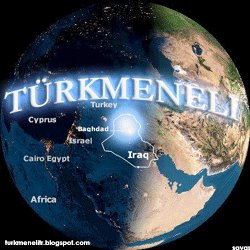Iraqis are not fooled by the hype as the brutality of the occupation grinds on regardless of Zarqawi, writes Nermeen Al-Mufti from Baghdad
The death of Abu Musab Al-Zarqawi has not alleviated tensions in Iraq. US and Iraqi troops still patrol main city roads as well as various highways. The roads linking Baghdad to Diali, the province in which Zarqawi was killed, and Al-Ramadi, a city still under attack, are being heavily patrolled. Al-Fallujah, Al-Ratba and Al-Qaem, all to the west of Baghdad, have been under siege for weeks. The only good news in the war-torn country is that the Shia militia in Basra have declared a cease-fire until the World Cup is over.
Iraqis have been in two minds about the death of Zarwaqi. Iraqi resistance brigades described him as a "brother" in Islam and jihad, but when a phone-in radio programme in Baghdad invited response from the public several callers voiced joy at the death of "the terrorist" while others voiced sympathy.
Reprisals were not long in coming. Fifty college students have been shot dead within a week. "Al-Qaeda in the Land of the Two Rivers," the group once led by Zarqawi, is thought to be behind the killing. Among the dead were 20 Turkoman Shias and students whose clothes violated the dress code Al-Qaeda is trying to enforce. Iraqis may have grown used to their countrymen getting killed by booby-trapped cars and "friendly" US fire, but the killing of students was received with a mixture of shock and alarm.
Political analyst Raad Al-Hodeithi was not optimistic. "Zarqawi's death might give President Bush a chance to boost his fortunes ahead of the half-term elections in November, but it will not increase his popularity. The Americans started a wide-scale attack against Ramadi on 10 June, following a siege in which the city's roads to Baghdad and other towns were cut off. This suggests that the White House intends to destroy Iraq and undermine the political process."
President Jalal Al-Talabani has told the nation that an agreement between the government and the resistance was expected soon and that acts of violence would subside by the end of the year. But Abu Ali, who is close to the Islamic Army, is doubtful: "The factions that have opened dialogue with the Iraqi government are not the same ones resisting the occupation. These are factions that search for political posts and perhaps financial interests. The factions of the true resistance have not started and will not start a dialogue unless US forces declare a timetable for withdrawal. We said were weren't going to talk to the government, because we don't recognise it."
Abdel-Aziz Al-Hakim, leader of the Iraqi Alliance, has once again called for a federal system in the south and centre of the country. Speaking in Al-Najaf to a gathering of Shia parties, Al-Hakim pledged to "work through all means to achieve this objective and complete the journey we've started". The gathering was attended by members of the Supreme Council of the Islamic Revolution in Iraq (SCIRI) and Iraq's Hizbullah. Al-Sadr supporters didn't attend the meeting.
This was not the first time Al-Hakim has called for federalism. In a speech delivered in Al-Suleimaniya late last year, Al-Hakim proffered that, "Federalism is the right choice for the Kurdistan of Iraq. It is also the right choice in the centre and south of Iraq, as well as in Baghdad and other Iraqi cities."
It is noteworthy that a substantial proportion of Iraqis object to Kurdish-style federalism because they don't want to see a regional government having defence and foreign ministers and talking to foreign powers independently from the central government. Many Iraqis see such federalism as a first step towards the partition of Iraq.
As political uncertainty continued, the Association of Muslim Scholars said that various militia and unidentified death squads were still murdering Sunni individuals, including clerics. Meanwhile, the Islamic Party, which takes part in the current political process, expressed satisfaction that Prime Minister Nour Al-Maliki's government freed dozens of Iraqi detainees.
Concerning the political process, the Arab League has postponed a national dialogue conference slated earlier for 22 June without setting a new date for its convocation. Several Iraqi politicians had said that they wouldn't attend the conference if it were held in the Green Zone, calling for the gathering to be held outside the country for security reasons. Masoud Al-Barzani has called for the conference to be held in Arbil, a venue unacceptable to many.
As chaos and mayhem continued unabated, Friday preachers advised relatives of the dead not to claim their remains from the morgue. The reason: four individuals have been abducted and killed when they went to claim the body of a relative.



